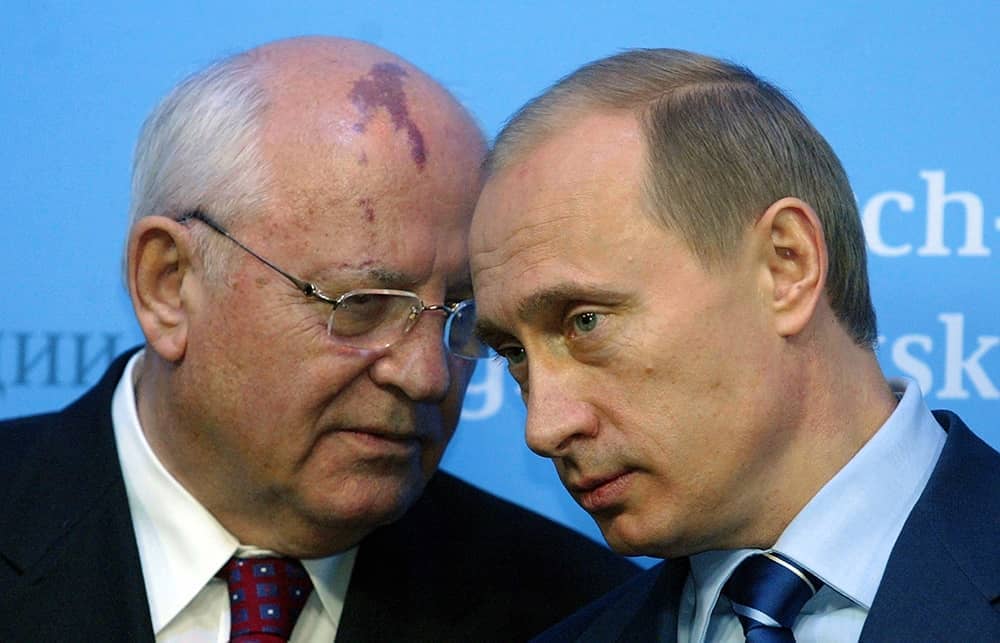In her memoirs, Raisa Gorbacheva recalls the moment when her husband turned from bureaucrat into reformer. ‘I’m in my seventh year of working in Moscow,’ he told her as they were walking together one evening. ‘Yet it’s been impossible to do anything important, large-scale, properly prepared. It’s like a brick wall – but life demands action. No, we can’t go on living like this any more.’ It was the first time, she wrote, she heard him say such words. ‘That night, a new stage began that brought big changes.’
Mikhail Gorbachev’s death this week has led to much analysis of his legacy. He is admired more in the West than in Russia. When he won the Nobel Peace Prize, his critics drily noted that it was not the prize for economics. While countries in eastern Europe reclaimed statehood and obtained democracy and prosperity, Russia slid into anarchy and gangsterism. The results of this failure lie before us now: there is war in Europe once again, energy prices are surging, and millions fear a winter of misery and penury.
The current crisis also has its roots in the western hubris that followed the end of the Cold War. There is still a widespread myth that the West ‘won’ and that Gorbachev effectively admitted that the communist game was up. In reality, although Gorbachev may have buried the USSR, he was a committed Marxist–Leninist whose aim – which he stated in private and public – was the ‘perfection, improvement, acceleration and finally the restructuring’ (or perestroika) of the communist system.
The real threat Volodymyr Zelensky presented to the Kremlin was that he showed reform was possible
There was no great global battle of ideas that ended with democracy and free enterprise emerging victorious – much though it suited the democratic world to pretend other-wise.







Comments
Join the debate for just £1 a month
Be part of the conversation with other Spectator readers by getting your first three months for £3.
UNLOCK ACCESS Just £1 a monthAlready a subscriber? Log in